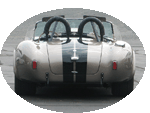
11-26-2016, 04:17 PM
|
 |
Half-Ass Member

|
|
|
Join Date: Jun 2005
Cobra Make, Engine: ERA #732, 428FE (447 CID), TKO600, Solid Flat Tappet Cam, Tons of Aluminum
Posts: 22,025
|
|

 Not Ranked
Not Ranked
 Funny you should ask...
Funny you should ask...
Quote:
Originally Posted by lippy

Can someone explain how different gas would dramatically change the amount of metal particles in the PCV oil vapor? I'm not getting it. |
Quote:
When a pound of gasoline is burned, about a pound of water is produced. Combustion also creates oxides of nitrogen from the air, and these oxides may form acids. Small amounts of carbonic acid, sulfuric and sulfurous acids, lead sulfate, compounds of chlorine and bromine, and other complex compounds may be formed. If combustion is incomplete, aldehydes are formed, and when knock or detonation occurs, even more complex reactions take place. During combustion, unburned or partially burned carbon or soot also forms, and it forms more heavily when the air fuel mixture is rich.
Most of these compounds leave the engine through the exhaust, but a small amount goes into the crankcase from blowby. Some fuels also form other undesirable decomposition products. These products are not only oil contaminants, but may interfere with the action of piston rings and affect engine cleanliness.
|
Source: Motor Oil Degradation http://www.le-international.com/pdf/...egradation.pdf |